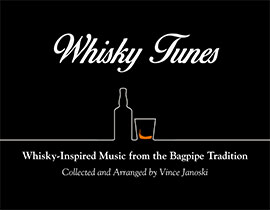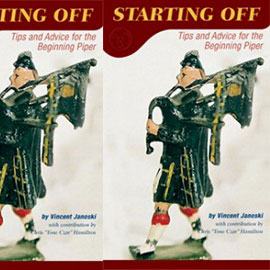Cracking the Millstone, Part I: Bagpipe Competitions Are Dead
 It’s spring approaching summer here in the eastern US. And you know what that means? That means the Highland games and bagpipe competition circuit has begun in earnest. Many pipers are eagerly pressing their kilts, spending hours of practice time, and preparing their instruments for…well, another year of the same merry-go-round of MSRs, piobaireachds, and pipe band medleys. And on it goes.
It’s spring approaching summer here in the eastern US. And you know what that means? That means the Highland games and bagpipe competition circuit has begun in earnest. Many pipers are eagerly pressing their kilts, spending hours of practice time, and preparing their instruments for…well, another year of the same merry-go-round of MSRs, piobaireachds, and pipe band medleys. And on it goes.
If you’ve been in this bagpipe competition game for any length of time, you can’t help but confront the absolute toil of it all. Sure, there is growth opportunity, the chance to “strut your stuff” before a judge. But then what? The sheer monotony of bagpipe competition here in the US can wear you down after a while. Bill Livingstone once likened competition to a “millstone,” and he’s right. Lots of great, interesting stuff goes in, only to be crushed into a homogeneous powder.
The problem could lay in the fact that the circuit of competitions is really the only opportunity we have as bagpipers to perform in public and show what kind of music we can produce. Typically that means playing for one guy or gal sitting at the judge’s table. Rarely is there an audience of more than three folks and two of them are probably fellow competitors. So basically, we’re playing for ourselves. Now, some folks might think that’s just fine. But there can be no growth in bagpipe music, pipe band performance, or any of it here in the USA until we have other means to express what we do. And that entails other forms of performance or a change in the overall framework of bagpipe competition. Without that, we will ultimately see the death of the form.
Mainstream orchestral musicians also compete. There are hundreds, if not thousands of music competitions of all sizes. There are plenty of ways for a musician to earn “street cred” by working hard and taking prizes. Some of these events are career-launching affairs with high stakes. Sometimes there are jobs and symphony placements on the line, sometimes recording management, desirable goals that would make any musician work harder at their craft. Many regard these competitions as pathways to success. Others regard them as learning opportunities to grow as artists.
But you know what? The adjudicators at these kinds of events worry about the lack of growth in the artistry they are hearing. Barli Nugent, an assistant dean at Julliard writes about this very thing:
“There is no question that the intention of the artists, working to prepare every note, every phrase just so, is to be ready to share—under the most strenuous of conditions—their most deeply-held convictions about the music with an audience they are yearning to affect. But if that work results in a highly toned technique at the service of an inviolate road map yielding a pre-planned moment-by-moment product, the performance may be impressive but the music will be dead.“
She could be talking about bagpipe competitions except for two things: There is no audience to affect; and our deeply-held convictions about the music really aren’t welcome on the platform. Modern US bagpipe competition performance is, as she says, a pre-planned moment-by-moment product.
I’ve written about this before (and it is worth discussing until the last cane chanter reed on Earth is blown). The trouble is most of the solutions you hear (mine included) deal with the nuts and bolts and an “outside–in” approach. What we need is the reverse—a change from the inside. Something that will crack the bagpipe competition millstone and allow all the interesting variety that goes in to flourish.
Stay tuned for Part II where we explore ideas to do just that.
-
Jfkorber
-
Lex
 Pipehacker
Pipehacker








